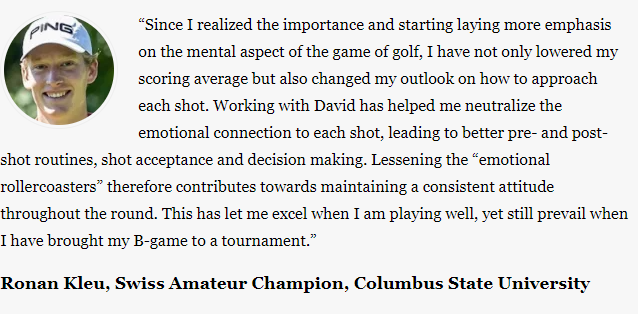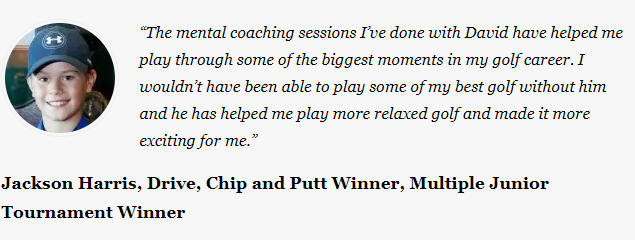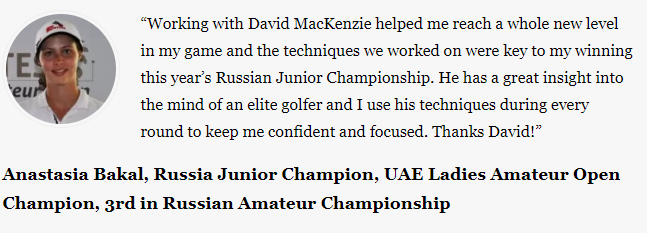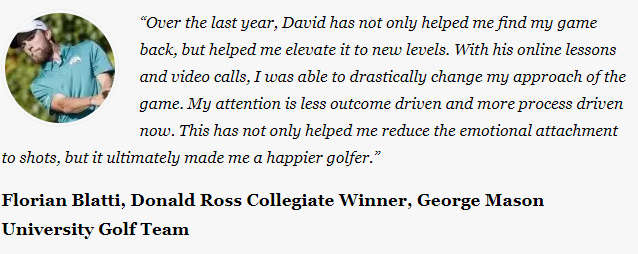The journey to your goal is going to be full of challenges and failures along the way. In a game as difficult as golf, there will always be more failures than successes.
Your approach to these challenges and failures is also known as your mindset for golf, and it’s a huge factor in your overall success. The good news is that your mindset for golf isn’t fixed, and we can continually work on it and develop the growth mindset of a champion.
How do you view failure?
Do you see it as an indication that you are not good enough or that it’s a way to learn how to be better?
Do you play with fear of making mistakes because of what failure would say about you to others?
The studies of Professor Carol Dweck at Stanford University prove how mindset affects learning and skill development. She concludes that people who exhibit more of what she calls a “growth mindset” to learning, viewing failure as a way to learn most effectively, and seeing challenges as a positive, are more successful in the long-term. The opposite of a growth mindset is called a fixed mindset which describes a person who sees their ability as fixed and hence they are less concerned about the learning and more concerned about the result as it speaks to how good they are. In the context of golf, I call these two different mindsets and types of golfers, Mastery and Ego Golfers.









